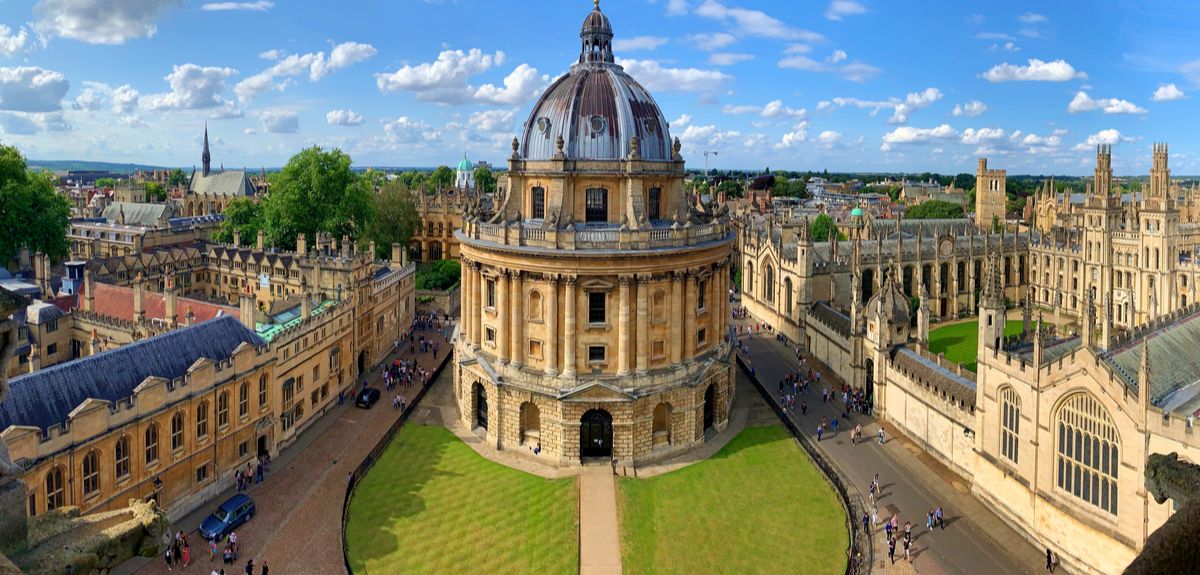
Oxford investigators part of urgent new economic and social research programme
Six new research centres have today been announced by the Economic and Social Research Council - as part of £49 million programme to tackle critical social and economic issues. And, following a highly competitive process, five Oxford researchers have been named as co-investigators across three of the centres
Dr Ann Dowker; Dr Ridhi Kashyap; Professor Melinda Mills; Dr Charles Rahal and Professor Gaia Scerif are co-investigators in the research centres which, according to the ESRC, are major strategic investments, taking forward an ambitious government research agenda to deliver real societal and economic impact. Also, to provide robust research evidence to support government decision making.
The new research centres are major strategic investments which take forward a...research agenda to deliver real societal and economic impact
Leading academics from across the UK’s universities are involved with the work of the centres, each of which has been given some £8 million to fund research. But the fact that three centres have Oxford co-investigators – with the majority coming from the Leverhulme Centre for Demographic Science - is viewed as ‘remarkable’. The three, each of which has been awarded more than £8.2 million, are:
- The Centre for Care – led by Professor Sue Yeandle at Sheffield University
- The Connecting Generations Centre - led by Professor Jane Falkingham at Southampton University, and
- The Centre for Early Mathematics Learning – led by Professor Camilla Gilmore at Loughborough University.
Professor Alison Park, interim executive chair of ESRC said, ‘We are delighted to announce the funding for these six centres, which demonstrate the excellence, breadth and relevance of social science research. They will all bring a fresh social science perspective on many issues of major public and policy interest and will provide robust research evidence that can be used by policy makers and practitioners.’
It is really remarkable that researchers from Oxford - especially the Leverhulme Centre for Demographic Science - are going to be involved in three out of these ESRC six centres, driving forward key research projects into critical social issues
A core member of the Leverhulme team, Dr Charles Rahal, is a co-investigator in the Centre for Care, which aims to address the urgent need for accessible and reproducible research and evidence on social care. Other collaborators include the Universities of Birmingham and Kent and the London School of Hygiene & Tropical Medicine.
Dr Rahal and his team will focus on big data and computational approaches – including methods, data and infrastructure development – all with a sustained focus on inequalities.
Professor Melinda Mills, who heads the Leverhulme Centre, and another core team member, Dr Ridhi Kashyap, are co-investigators in the Connecting Generations Centre, which aims to strengthen the evidence base on population change and fairness between generations.
The centre will explore how issues such as living standards, jobs, housing costs, taxes and benefits, and caring responsibilities are affected by population and generational changes and study inequality - with the aim of improving the lives. Professor Mills is one of six main applicants, along with the Universities of Southampton, St. Andrews, Stirling, Oxford and the Resolution Foundation.
Dr Kashyap will lead research on digital and computational demography, exploiting new forms of social media data and advanced techniques in machine learning to quantify new ways of studying connections between generations.
The Connecting Generations Centre unites the top demography groups across the UK to look at intergenerational issues in a new way
Professor Melinda Mills
Professor Mills will extend intergenerational research in the social sciences by infusing research from molecular genetics and genealogy to ask fundamentally new questions on how the timing of key life course events and trajectories are driven by social, environmental and genetic factors.
Professor Mills said, ‘The Connecting Generations Centre unites the top demography groups across the UK to look at intergenerational issues in a new way. The LCDS is delighted to join with our unique interdisciplinary and computational social science approach to explore intergenerational topics related to fertility, migration and assortative mating through the lens of genetics, genealogy and new forms of social media data.’
Meanwhile, Professor Gaia Scerif and Dr Ann Dowker, from the Department of Experimental Psychology, are both co-investigators with the new Centre for Early Mathematics Learning in Loughborough.
It is a privilege to be involved in this national effort to promote early mathematics learning for all children, including those from under-represented communities
Professor Gaia Scerif
Improving the quality of early mathematics education has been recognised as a priority in the UK and around the world. The aim of the Centre is to transform our understanding of children's mathematics learning during the early years by thinking holistically about what contributes to maths, and equip educators with the knowledge, tools, and confidence to help children succeed.
Professor Scerif said, ‘It is a privilege to be involved in this national effort to promote early mathematics learning for all children, including those from under-represented communities.’
Professor Mills added, ‘It is really remarkable that researchers from Oxford - especially the Leverhulme Centre for Demographic Science (LCDS) - are going to be involved in three out of these ESRC six centres, driving forward key research projects into critical social issues.
‘The LCDS researchers are excited to be part of this important programme, which will help to make a difference by delivering essential research which will underpin decision-making into the future.’
 Expert Comment: Four years of full-scale war and Ukrainian resistance continues
Expert Comment: Four years of full-scale war and Ukrainian resistance continues
 Oxford and Liverpool join forces to tackle global challenges
Oxford and Liverpool join forces to tackle global challenges
 Chancellor of Oxford University hosts special honorary degree ceremony
Chancellor of Oxford University hosts special honorary degree ceremony
 New research shows high temperatures affect sex ratios at birth
New research shows high temperatures affect sex ratios at birth